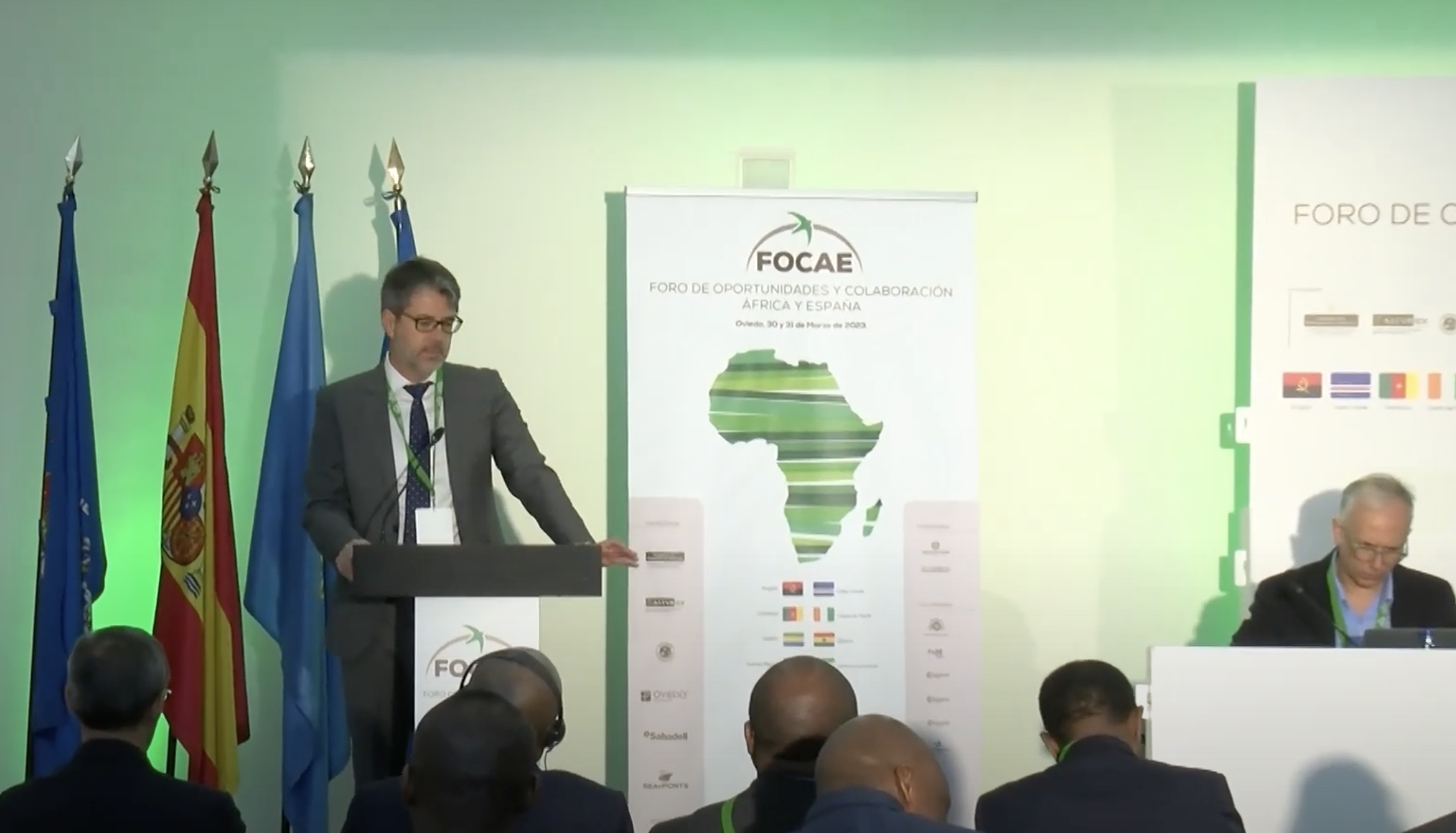
European Union after Brexit (full article)
The operation of the institutional system of the European Union after Brexit
On 1 February 2020, the United Kingdom left the EU, making this a sudden break after 47 years of an unstable but fruitful relationship for both sides. It is true that until 1 January 2021 this separation will not be fully effective and it is not ruled out that this period may be extended by one or two years (an extension that must be agreed before 1 July 2020), especially if the world health crisis that we are experiencing is taken into account.
A double process, no less complex, is now beginning: the negotiation of the new relationship between the European Union and the United Kingdom, and the beginning of a new period in which both parties will act independently and separately. Far from what some naive “Brexiters” may think, neither of these processes will be easy, simply because ending almost half a century of economic and political integration is not easy, and even less so forgetting the many centuries of political, social, commercial, labour and cultural relations, as well as existing ties of affection between its citizens. Drawing a line and starting again is not possible, and for this reason it is going to force everyone to be prudent, understanding and imaginative in order to find solutions that seek the least possible amount of mutual destruction.
Brexit has taken place in a particularly complex political, economic and institutional context. Firstly, due to the exceptional circumstance that has occurred, the European and world crisis caused by the Covid-19 pandemic. The extent of this crisis was not predictable, but there is no doubt that it will require focusing on what must be the priority objective: economic and social recovery.
However, other endogenous factors must be added to this. The Union was trying, once again, to get out of this "loop" which it has been in since the great expansion of 2004 and the failure of the 2005 constitutional project. That great expansion to the countries of Eastern Europe responded to a plausible strategic purpose, to reinforce the new democratic states that emerged after the fall of the communist regimes which had remained under Soviet hegemony for almost half a century. It was a political priority of historical scope. But it came at a time when the 15 community partners had failed to carry out the readjustment of an institutional system designed for 6, and which had to be applied to an organisation that would quadruple its number. The Amsterdam (1997) and Nice (2001) attempts, while allowing valuable reforms, failed in their primary purpose.
The draft of the 2004 European Constitution was intended to be a shake-up that would allow us to make an exciting leap in European integration and make us forget that this Union no longer held that homogeneity. In addition, it would also serve to reinforce a Europeanism that was being lost in the original countries themselves. The rejection in the referendums held in two of these countries, the Netherlands and France, put an end to it, leading to a period of paralysis until the Lisbon Treaty (2007) managed to turn things around, with a pragmatic and effective solution that incorporated most of the constitutional treaty reforms.
However, after the entry into force of this treaty, the 2008 financial crisis broke out. This crisis put the community project into question again, and forced it to put aside any other objective that did not involve addressing what has probably been the greatest threat to the survival of European integration. And again, as with any endless loop, when the recovery began to succeed, in June 2016 the Brexit referendum hit any attempt to pursue new goals.
During the almost 4 years of negotiating unease, Brexit has been the single chord on the European agenda. Once completed, it seemed that a moment of greater tranquillity was coming that would allow old pending projects to be dealt with. A Parliament and a Commission were beginning a new phase to continue the debate, started by the Juncker Commission to mark the 60th anniversary of the Treaties of Rome, which published five reflection documents and a white paper with five possible scenarios for the evolution of the Union. As indicated at the beginning of the said document, a debate should have begun which would allow us "to have a plan, a vision and a way ahead that we can present to citizens when the elections to the European Parliament are held in June 2019". It is clear that this objective could not be achieved either. For this reason, after being proposed by the European Council as President of the European Commission, Ursula Von der Leyen, presented in terms of a programme, a document named “A Union that strives for more. My agenda for Europe. Political guidelines for the next European Commission 2019-2024”. Once appointed and constituted, the new Commission approved the “Commission Work Programme 2020. A Union that strives for more”, compiling the substantial aspects of the document.
One of the most striking proposals of the Von der Leyen Agenda was to set up a "Conference on the Future of Europe, which will have to present its legislative or other proposals on this subject by the summer of 2020 at the latest"; in the Commission's program this was specified indicating that “the Conference on the Future of Europe will bring together citizens, EU institutions and national, regional and local politicians in its debates. The Commission presented its ideas on the Conference in January, with the idea that its scope, format and objectives will be the subject of a quick agreement with the European Parliament and the Council.” It is not necessary to be a visionary to presage that the effects of the pandemic are going to destroy these forecasts and that once again these good aspirations are going to have to give way to the urgent and indisputable priority: the economic and social recovery from the crisis that we are currently undergoing.
There is also another priority issue on the community agenda that will complicate undertaking any reform: the agreement on the Multiannual Financial Framework for the period 2021-2027, which must quantify the Union's economic resources to address any future project. It is an agreement that also requires unanimity within the Council and which has already begun to prove difficult to gain its approval (as shown by the statement by the new President of the European Council, Charles Michel, to summarise the failure of the extraordinary European Council held on 20 February 2020: “We have worked very hard to try to reconcile the different concerns, the different interests and the different opinions on the table. But we need more time”). This issue marks the moment of “moving beyond the talking stage”, and the grandiloquence of the speeches must give way to decisions that reflect the true Europeanism of its protagonists. That debate is not going to take place at the best time, under the effects of this terrible world pandemic. In short, one does not have to be very pessimistic to realise that we are back in the loop and that we have to dedicate all our efforts to extinguish the newly detected fire.
The impact of these factors on the community institutional interplay must begin with the European Commission, which had a turbulent development with the failure of the political commitment of the Spitzenkandidaten, when certain political leaders refused to be obliged to appoint, prior to the elections, the president of the Commission as their designated candidate for the European political party who was most voted for in the European Parliament elections. This compromise on these Spitzenkandidaten was a mere political agreement, without binding force, but to which the previous European Parliament committed itself with particular emphasis. The refusal to name the candidate of the European People's Party, the most voted formation in the May 2019 elections, and certain manoeuvres to find an alternative candidate led to the dilemma being resolved by the Union's intergovernmental pillar. Perhaps as a reminder of those who continue to be the “lords of the treaties” they appointed a German Christian Democrat, Ursula Von der Leyen, minister of Angela Merkel's government, thus allowing her to be the first woman to preside over the institution's guardian of the treaties.
The new European Commission does not have it easy; but it can follow the example of what, in my opinion, has been an exemplary course of action at a delicate moment in which it seemed that all hostilities between European partners were going to be unleashed: that of the Brexit Negotiating Group led by Michel Barnier. His flexible, yet at the same time firm, negotiating work, transparent and establishing a flowing channel of information with national governments, not only with the Commission and the European Parliament, but also with national parliaments (he has even appeared three times before the Joint Committee for the EU of the General Courts, to relate the state of the negotiations), has allowed the Union to maintain a homogeneous and seamless community position in the face of changing positions on the British side. This example can be followed by the new Commission.
The loss of one of the big States has resulted in changes in the composition of the European Parliament, taking advantage of the moment to restore proportionality with the national population. As of 1 February, some Member States have seen an increase in the number of deputies in the European Parliament: five for Spain and France, three for Italy and the Netherlands, two for Ireland and one for Poland, Romania, Sweden, Austria, Denmark, Slovakia, Finland, Croatia and Estonia.
Furthermore, the elections held in May 2019 have configured a quite different distribution of political power from the bad omens predicted by some. The political forces, which until now have governed the community institutional system since its origins (a de facto type of coalition between Christian Democrats, Socialists and Liberals), continue to hold 60% of the seats in the Chamber (26.6% for the popular party, 21% for the socialists and 13.8% for the liberals), which does not allow the detection of a sense of alarm. On the other hand, the populist and most radical formations do not reach 20% (10.8% Identity and Democracy, 9.5% the Green Parties, 8.8% the Conservative group and 5.7% the European United Left)
This relatively peaceful picture should not make us lose sight of the fact that the European Parliament, co-legislator together with the Council since the Lisbon Treaty, is not governed by rules of action as predictable as those of the Council. Experience shows that the European Parliament, as is sometimes observed in intergovernmental circles, "has a life of its own" and is not prepared to be considered as a silent partner in light of Council decisions, even when such decisions have been reached after long and laborious negotiations and respond to delicate balances. Furthermore, in many issues, the national factor has an even greater relevance than the ideological one (as can be the case in the aforementioned debate on the financial framework). Additionally, obtaining negative or obstructionist majorities is much easier than generating favourable majorities, and these often result in radically different groups coinciding. This means that even when there do not seem to be majorities contrary to the pro-European positions, the dissensions between those who defend them can be used by these minority groups to prevent or postpone agreements. And the embers that may remain from the failure of the Spitzenkandaten among the majority groups remains to be seen. Therefore, further upsets cannot be ruled out.
In the case of the Union’s Council, an institution which, although it has lost the exclusive hegemony of the community origins, still has the most decisive position, the repercussions resulting from Brexit are likely to be greater. This is the case not only due to the variations in the computation of the majority relating to the percentage of the population to adopt agreements by a qualified majority or to obtain a blocking minority, but above all due to the readjustment that will occur in the relationships of power and influence of each State. At first glance it might be thought that Germany has seen its negotiating position strengthened by the elimination of one of the big members, but the issue is much more complex than this.
Regarding the computation of majorities, it should be remembered that the qualified majority, required for most community regulations and acts, requires the favourable vote of at least 15 States, provided that they also represent 65% of the population of the Union; and the blocking minority, which prevents the adoption of an act, requires the rejection to be raised by 4 States representing 35% of the population (art. 238.3 TFEU). It is this blocking minority which, in the complex community negotiation, has acquired more strategic relevance, since it places those who can facilitate it in a position of noteworthy influence. At this point, the German position is not much better than that of France, Italy or Spain, as any of these can achieve a blocking minority with the other two along with a fourth smaller state. This allows France, together with Italy and Spain (which together represent 39.1% of the population),together with Portugal or Greece, to form a strong position in the negotiation of Mediterranean interests. In this regard, it is worth highlighting the importance of the Spanish negotiating position, compared, for these purposes, to that of the other three large States. Without a doubt it must be an asset to be played by the Spanish government.
In contrast, Germany has lost the comfortable position that it has had until now in matters related to the increase in community spending. The leadership of the British against any attempt in this regard, heading a group of governments described as the "frugals" (the Netherlands, Denmark, Austria and Sweden), for their stance against any increase in the economic resources of the Union, has allowed Germany to remain in the background. All commentators predict that it will now have to hold a more active and visible position, which may lead to confrontations with France. Moreover, it should be highlighted that Germany, even with the frugals, would not have a blocking minority.
In addition, it is worth mentioning a new phenomenon consisting of the public emergence of groups of governments with homogeneous interests. It is true that there has always been a proximity in the positions between certain governments, based on an affinity of interests: the Benelux countries, those of the South, the Scandinavian and the Baltic nations, but it was something reserved and rarely formalised. What is new is that now there seems to be a desire to make this visible and to even institutionalise it. Prior to the frugals, four governments from Eastern Europe, former popular democracies under Soviet rule (Poland, Czech Republic, Slovakia and Hungary) created the Visegrad Group. They meet regularly, including with the committees of their national parliaments, and they approve texts that they send to their colleagues. They are characterised by their nationalist position, defender of national interests and against both the expansion of the powers of the Union and the increase in the community budget to reinforce territorial cohesion policies. Although the group has little weight in the voting of the institutions (14.2% of the population), it is obvious that they show greater strength than they would if they acted alone.
In contrast to the frugals, the beginning of the debate on financial perspectives has given birth to a new group of this nature, "The Friends of Cohesion", who are also advocates of strengthening the cohesion policy. It is made up of no less than 17 governments, all of which have joined the Union since the great expansion of 2004, as well as Greece, Portugal and Spain. They share common ground in that they are all recipients of the structural funds and do not have a great political weight, with the exception of Spain, whose political weight is analogous to that of the big members and will become a net contributor. Without counting Spain, this group represents 27.8% of the population, but including Spain their representation rises to 38.6%, and can therefore constitute a blocking minority. This may be one of the keys to the Spanish presence, the strategic importance that this presence can occupy and the counterparts in terms of the influence it can achieve.
The situation is complex because there are other coalitions that intersect their members and interests. This is the case with the recently created “New Hanseatic League”, which, like its medieval predecessor, defends free market positions and is opposed to interventionist or advancement measures in political integration. It is made up of ten countries: The Netherlands, Ireland, the Scandinavian and the Baltic nations, Czech Republic and Slovakia. They only represent 11.3% of the population and wouldn't reach the blocking minority even if they joined forces with the Visegrad group (it would amount to 21.9%). In this group the departure of the United Kingdom also seems important, with whom they could have set up a blocking minority and will now need the support of one of the large States.
As it can be seen, the large States, except for the case of Spain and on a very specific subject, have remained on the sidelines of this interplay, in order to have greater freedom of movement. They will have the main negotiating weapons, seeking the support of one of these groups or simply joining together to stop any initiative contrary to their interests. This situation is not going to be easy, since community activity is not designed to block (which must be a negotiating weapon that can only be used in extreme cases), but rather to seek agreements and legislating. Here too, the best negotiation and transaction practices will have to be developed.
There are other factors that could also enter our analysis (such as the case of the eight hundred British officials of the European Commission who are going to continue, but removed from any position of responsibility or influence), but we must conclude.
The panorama described shows that the community decision-making system will not be easy to manage. In fact, it is an awful scenario, designed more to slow down than to advance. If the Commission disagrees with the Council's position, it has the possibility of forcing unanimity in the Council (art. 293.1 TFEU). Within the Council we have shown the possibilities of blocking minorities. And finally, the Parliament responds to its own rules and is not willing to be a silent partner. On this horizon, which diversely is not completely new, it is necessary for the leading players to assume that they are going to have to demonstrate a great deal of patience, perseverance, flexibility and empathy with the positions of others and seek imaginative formulas which will help them to get out of deadlocks. To do this, the practice of trilogues, meetings of representatives of the three institutions after the first reading of the legislative procedure, may be particularly useful, even at the cost of transparency. It will only be enforceable after the agreements can be subject to unavoidable public scrutiny.
The only State whose only official language is and will continue to be the one widely used in the Union is leaving. The country characterised by its pragmatism but also by the repeated obstacles it has posed to European integration (from the "UK Rebate" to the rejection of Schengen and the euro). A country with a vision of Europe based strictly on national interests, as Vice-Secretary Humphrey explained to his Minister in the brilliant British television series of the 1980s, adding “we have entered the EEC to annoy the French and separate them from the Germans” (J. Lynn and A. Jay, Yes Minister, 1988, p.333). But the mistake Humphrey made was to forget that European integration is based on favouring the national interests of all of its members, which sometimes forces them to yield and favour the positions of others, not because of an idealistic altruism but because it will result in self-interest. In other words, community interest is not something alien and contrary to national interest, but rather they are both part of an interdependent relationship. If Germany does well in the long run, it will also benefit the United Kingdom, and vice versa. It is the case that in moments of crisis the vision of reality is clouded, which sometimes leads to us forgetting that we have to save ourselves together. The more than sixty years of European integration should have taught us this lesson which we have to remember in the turbulent times we have ahead of us.










Add comment